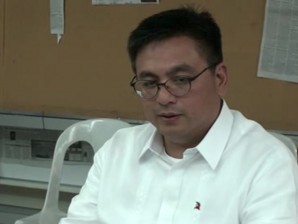10 more Customs execs placed in ‘think-tank unit’ in revamp

Customs Commissioner Ruffy Biazon. INQUIRER.net FILE PHOTO
MANILA, Philippines — Ten more Bureau of Customs officials have been transferred to the newly created Customs Policy Research Office (CPRO) at the Department of Finance headquarters, bringing to 37 the total number of BOC executives to be placed on what DOF and BOC insiders call “floating status.”
In a Customs Personnel Order issued two weeks ago by Commissioner Ruffy Biazon, the following BOC personnel were detailed to the CPRO: Assistant Commissioner Ericson Alcovendaz of the Post Entry Audit Group; Director George Aliño of the Enforcement Security Service; Director Fernandino Tuason of the Intelligence and Investigation Service; Director Simplicio Domingo of the Legal Service; Collector Remedios Espinosa; Special Police chief Jose Brigido Yuchongco; Special Police Lt. Cesar Albano; Intelligence Division agent Richard Rebong; Elenita Abaño, chief administrative officer of the Public Information and Assistance Division; and Huberto Vasquez, PIAD administrative officer.
“All orders, circulars, memoranda, and issuances contrary to or inconsistent herewith are hereby revoked or modified,” said the BOC head in the directive, a copy of which was obtained by the Philippine Daily Inquirer.
Biazon earlier disclosed that some of the 27 revenue collectors who were transferred to the CPRO were considering “optional retirement,” especially “those who have just a few years of service left.”
“Those who are younger will most likely stay in their present assignments until the end of the Aquino administration (in 2016) unless there’s a new direction in the ongoing Bureau of Customs reform program,” said the former Muntinlupa City legislator.
Article continues after this advertisementWhen interviewed, the BOC head neither confirmed nor denied that those moved to the CPRO had been placed on floating status, but said it was true that the finance department had started training the collectors’ replacements.
Article continues after this advertisementBiazon pointed out that the reconfiguration of bureau personnel and their transfer to the CPRO were “part of a bigger plan to reform the bureau.”
The DOF calls the CPRO the “think tank” for the bureau, one of its attached agencies.
“The CPRO is a specialized agency under the Department of Finance whose main task is to help improve revenue collections of the BOC by providing necessary policies, procedures and legislative reforms,” it said.
In the Customs Reform Project website, the department claimed “the job descriptions at the CPRO are not limited to research work. The CPRO holds a huge responsibility by charting the future of the Bureau of Customs and the Philippine economy” in general.
The DOF said “it is very difficult to think of the changes that need to be implemented if one is immersed in the daily grind of operations.”
“Neither the BOC nor the DOF has a team focused on studying policy changes and drafting legislative proposals. Our Customs laws and policies have been outdated for decades. It is high time we update these in light of changes in the global trade environment and the country’s commitment to international agreements like the Revised Kyoto Convention,” it also said.
According to the finance department, “three criteria were used as basis for the selection of employees detailed to the CPRO: experience, education and expertise.”
“Customs procedures and policies, as well as nuances in the global trade environment, are highly technical and intricate. It is necessary that the CPRO be augmented and reinforced by experts from the Bureau of Customs, who are, therefore, the most qualified to take on the tasks of the CPRO. But as operations and the work plan of the CPRO is put in place, it is very likely that more personnel from the finance department and other government agencies will be assigned to the CPRO,” it explained.
Related stories
‘3 Kings’ of customs dethroned in revamp
Court junks 13 Customs collectors’ plea to stop their transfer